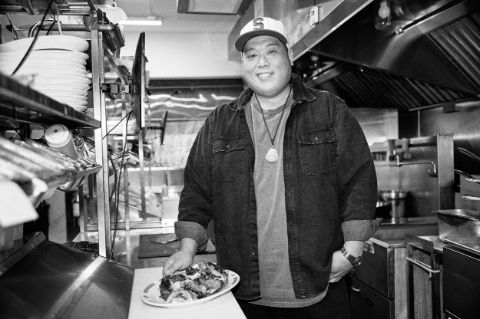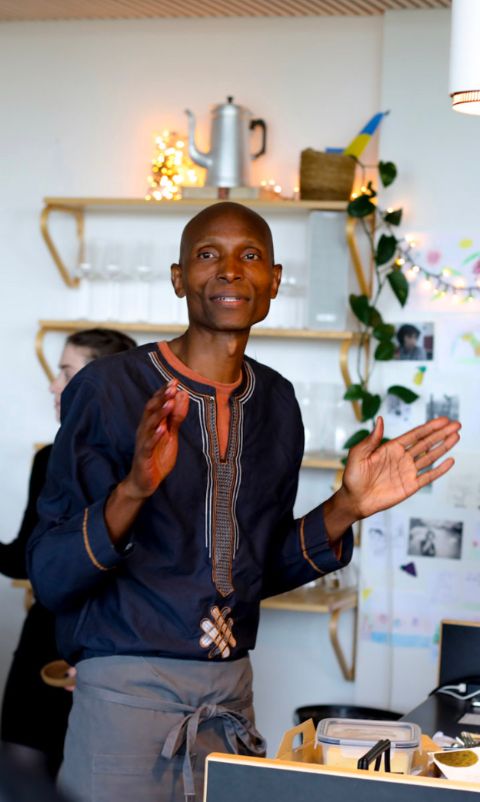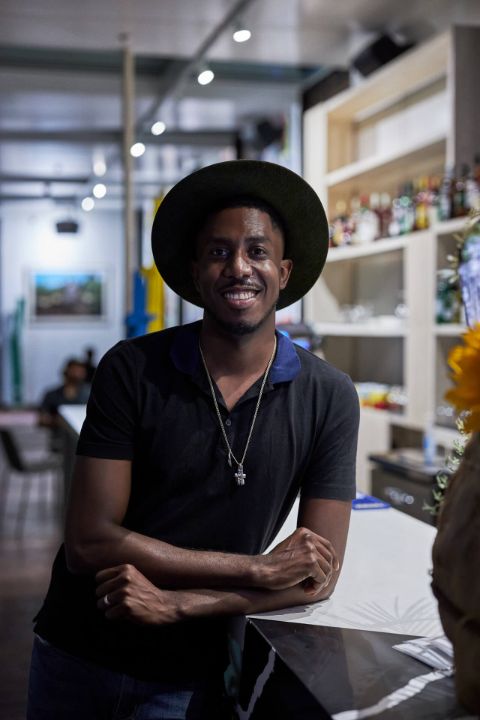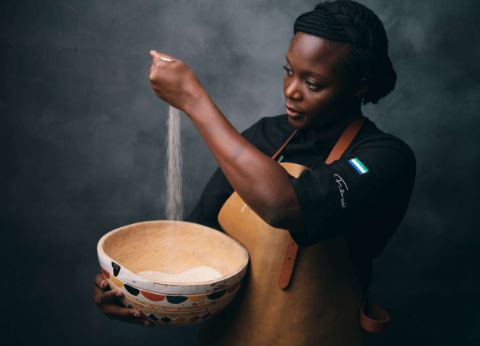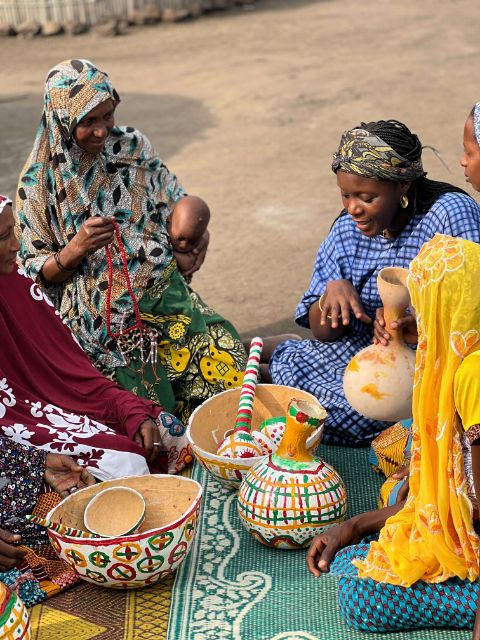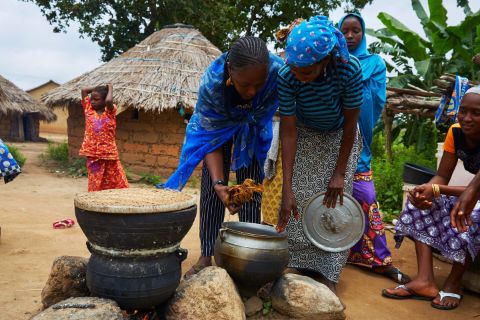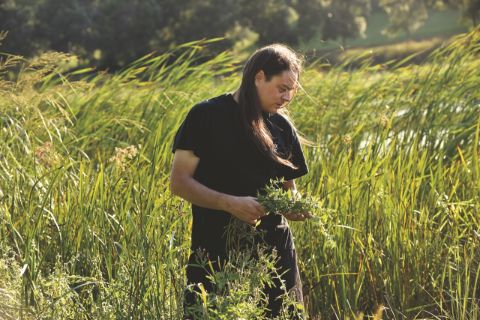Tongue and Throat Memories
On hospitality and conviviality through food knowledges and convenings
Cooking Sessions
2023–2027
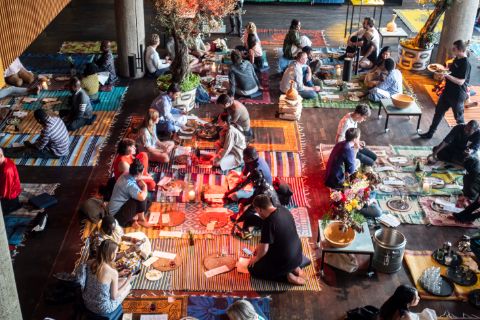
Dine on a Mat—A Taste from the Fulani Kitchen with Chef Fatmata Binta, HKW, 4 June 2023. Photo: Mathias Voelzke
In the Wolof language spoken in the Senegambia region in West Africa, the word kër could be translated as ‘house’. However, the meaning of kër goes beyond an understanding of the house as a physical structure; it encompasses the people in it and their experiences, roles, energy, values, and modes of care, which are collectively constructed. A better translation of kër in English would be a “welcoming house” with food and love alike—a welcoming home. Tongue and Throat Memories acts as an ongoing quest to respond to the central question: To what extent could Haus der Kulturen der Welt be thought of and transformed into a home for the cultures of our worlds?
Fundamental to this question is to embrace all future guests that walk through HKW’s doors. Knowing that a home can live on, be permanent, and in a process of constant revival and energy renewal from generation to generation, the question of what will become of this home that intends to be built together is crucial. In establishing a welcoming home, food is a central element for convening guests from many origins, age groups, and cultures, for one cannot study any culture without engaging in a quest to understand its food rituals and traditions. Cooking and sharing a meal thus constitute a gesture of solidarity and of healing. This programme takes shape through cooking, tasting, and eating moments, considering them as starting points for meaningful encounters and dialogues.
In her groundbreaking book, Longthroat Memoirs: Soups, Sex and Nigerian Taste Buds, Nigerian writer Yemisi Aribisala reminds us of how fascinating throat memories are, even though often forgotten as essential archives. She reflects on hospitality and conviviality, pointing out the way traditional circular seating and collective eating found in West African traditions and around the world have dealt with difference and exclusion.
Thinking about the long history of forced migration and displacement, this is an opportunity to unpack various food cultures of those who historically had to establish new homes on lands in Africa, the Americas, Asia, Europe, and the Middle East as an act of survival and resistance. These new homes were constructed around the need for subsistence resolved only by active practices such as seeding, farming, and other modes of food cultivation. Escaping enslaved people, for instance, used hair braiding techniques to collectively draw maps of the slave masters’ fields. As an act of survival, they hid seeds under their braids, allowing them to establish themselves in new lands and use their earthly knowledge to grow food and utilize resources from scratch.
In this way, we can learn from these and countless other forgotten stories. To do this, HKW invites chefs from different cultures into the kitchen of the Weltwirtschaft restaurant from 2023 to 2027. Each chef creates a special menu for HKW guests, which is accompanied by an element of storytelling shared through various programmatic articulations such as films, performances, music, literature, leisure activities, and conversations. In this way, the intention is to revive the kitchen as a laboratory, a space for knowledge production, exchange, and transmission.
In 2026, two sessions take place in August and November, inviting chefs from Brazil and Jamaica to unpack traditions of food making and rituals pertaining to Candomblé and its intrinsic connection to the natural world, as well as unpacking the making of social and political salons established by Black intellectuals from the African diaspora in Europe, America, and the Caribbean.
With contributions from:
August 2025:
Chef Craig Wong
Patois Gathering from Asia to the Caribbean
May 2025:
Chef Tamsir Ndir
Jolof Stories from the Falémé Valley to the Lands of Teranga
With Abdourahmane Seck and Khadija Aisha Ba L’Artisane
July 2024:
Chef Njathi Kabui
Dinner of Return: An Afrofuturistic Approach to Conscious Cuisine
November 2023:
Chef Sean Sherman
Revitalizing Native American Cuisine with The Sioux Chef
July 2023:
Chef Paul Toussaint
Taste of the Haitian Dish
June 2023:
Chef Fatmata Binta
Dine on a Mat—A Taste from the Fulani Kitchen
